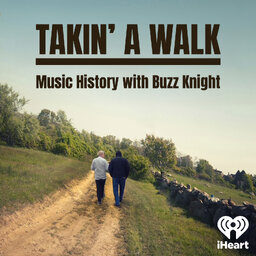"takin a walk' with Mark Farner: Grand Funk's Captain Closer to Home"
Join @thebuzzknight for this classic rock podcast interview with Mark Farner. He was the original singer and guitarist of the rock band Grand Funk Railroad which he co-founded in 1969. His best- known composition is the 1970 epic "I'm Your Captain (Closer to Home) and he is celebrating 55 years since the release with a new version of the classic. #bestmusicpodcast #bestmusichistorypodcast
For suggestion or comments write buzz@buzzknightmedia.com
Connect with Buzz on Twitter @TheBuzzKnight and Instagram @takinawalkpodcast.
Like this show? Please share with your friends at kindly leave us a review. Review
#bestmusicpodcast #bestmusichistorypodcast
 Takin' A Walk - Music History with Buzz Knight
Takin' A Walk - Music History with Buzz Knight


